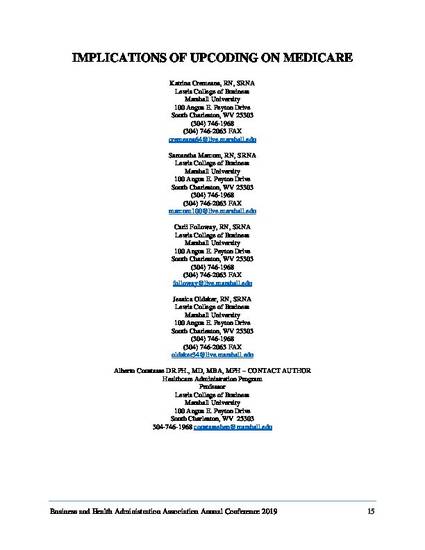
The complexity of and amount of funds involved in Medicare has led to a significant increase in the incidence of Medicare fraud. A type of Medicare fraud, upcoding, has contributed to excessive and unnecessary health care spending. Upcoding has been an illegal strategy that some providers have used to increase their Medicare reimbursement for certain conditions. This is accomplished by coding a provided service as a more expensive service than what was actually performed. With the proliferation of upcoding, there has been an astonishing $12.5 billion in fraudulent Medicare charges since 2007. The fraudulent strategy of upcoding to increase Medicare reimbursement for organizational financial gain has been a common occurrence and has resulted in substantial Medicare overpayments. While solving the problem of upcoding will not eliminate the myriad contributing factors to this enormous healthcare expenditure, it certainly would be a start.

TRACK: CORPORATE HEALTHCARE.
Copyright © 2019 Business and Health Administration Association. Reprinted with permission. All rights reserved.